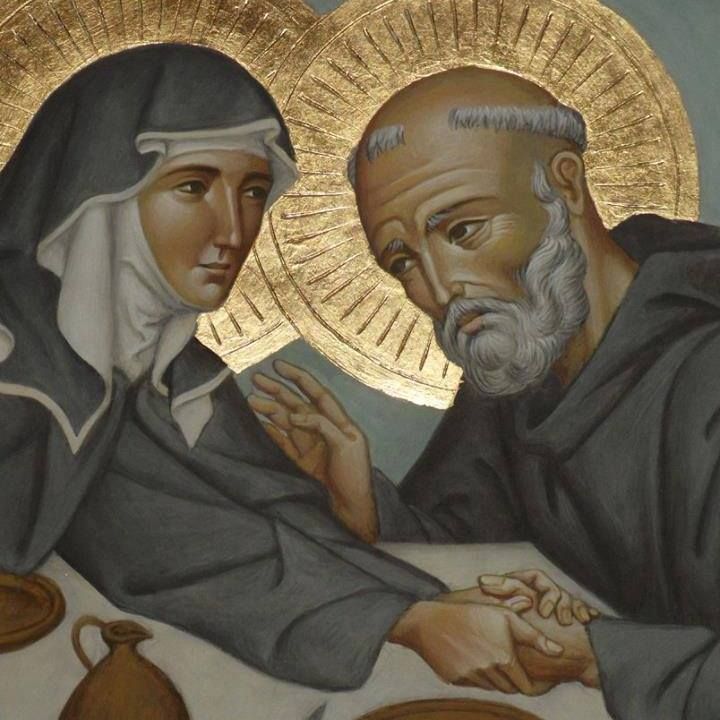Message of Abbot Paul - Friday 10th February 2023
Abbot Paul • February 10, 2023

Today the Church celebrates the feast of St Scholastica, twin sister of St Benedict. They were born at Nursia (today Norcia) deep in the Apennines of Umbria in Central Italy around the year 480. She died before St Benedict, as related in the Dialogues of St Gregory the Great, on this day in the year 543. I have always felt that she had a great influence on Benedict and was probably behind the humane domestic arrangements he wrote about in the Holy Rule. Examples could be what he has to say about the length of the monks’ habits and the quality and colour of the material used. Again, what he writes about the diet of his monks, the variety and quantity of food. And there is much more besides. Today we pray for all Benedictine and Cistercian nuns, who live by the Rule of St Benedict. They are our twin sisters, just as Scholastica was Benedict’s.
The Gospel passage chosen for the feast comes from Luke, (Lk 10: 38-42), a well-known passage that tells of a visit of Jesus to the home of Martha and Mary.“Jesus came to a village, and a woman named Martha welcomed him into her house. She had a sister called Mary, who sat down at the Lord’s feet and listened to him speaking. Now Martha who was distracted with all the serving said, ‘Lord, do you not care that my sister is leaving me to do the serving all by myself? Please tell her to help me.’ But the Lord answered: ‘Martha, Martha,’ he said ‘you worry and fret about so many things, and yet few are needed, indeed only one. It is Mary who has chosen the better part; it is not to be taken from her.’”
In John’s Gospel, we are told that the village was called Bethany and that the sisters also had a brother, Lazarus. All three were friends of Jesus and often received him and, presumably, his disciples into their home. This was no small task, hence the words of Martha in today’s Gospel. We also presume that they had a servant or two, a kitchen maid, for example, which is why Mary permitted herself the luxury of sitting at the feet of Jesus to hear him speak. Whatever the facts, Jesus tells Martha to calm down and be at peace, for there is no hurry. In fact, Jesus is never in a hurry, he always has time. Moreover, he insists that what Mary has done is right, for she is feeding spiritually on his word, while Martha is simply preparing a meal. Not that Jesus didn’t eat or that food and drink were unimportant to him, but Mary’s action was one of faith, while Martha’s was one of charity. Both are needed, but it is faith that leads to charity. Ultimately, he doesn’t want the sisters to criticise each other, but both to sit at his feet. I suspect that Scholastica was like Mary, whereas Benedict was a Martha. Both are needed, they complement one another, but in heaven all will lead to contemplation and adoration. All else will be left behind.









